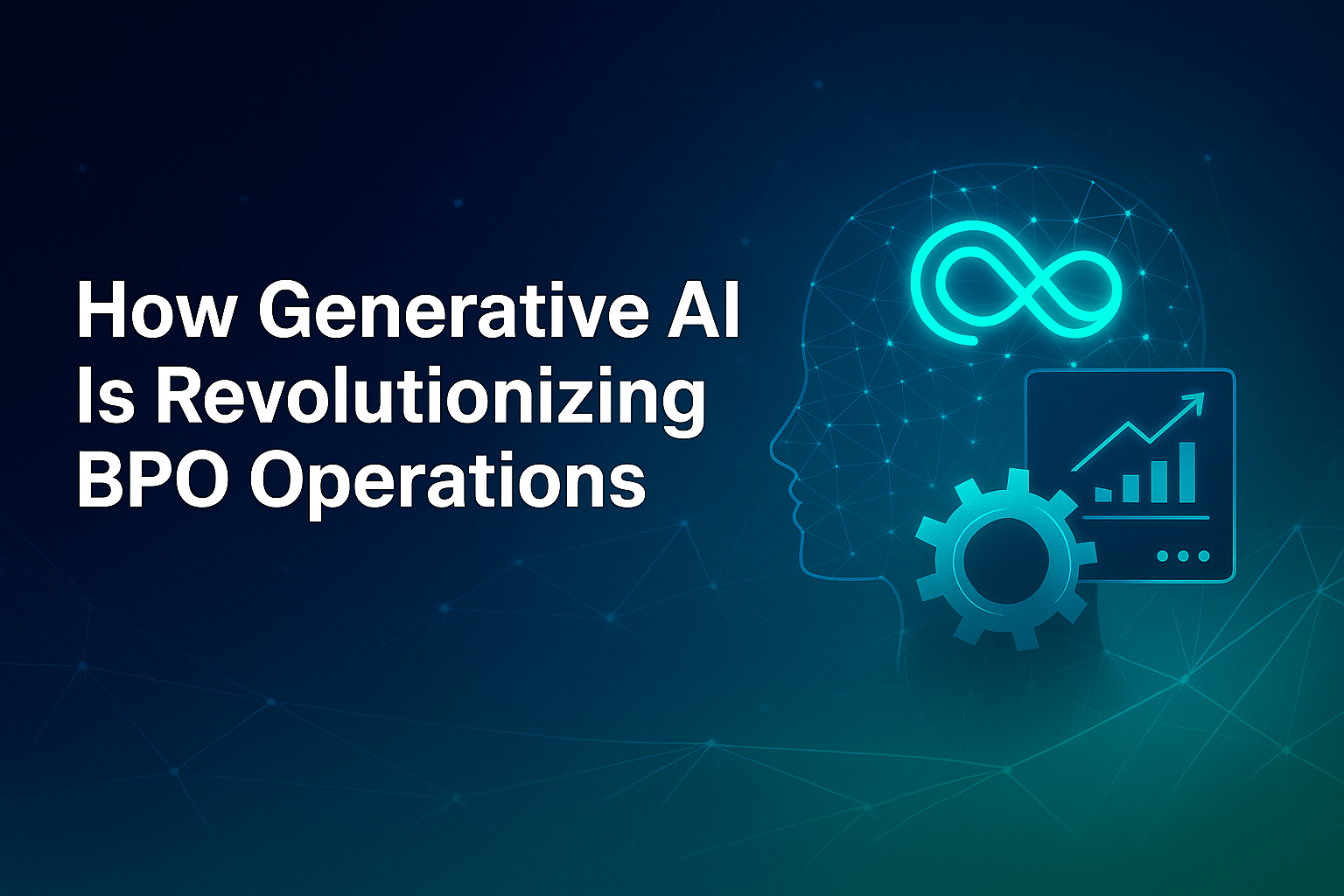
Introduction: The BPO Industry Meets Generative AI
Business Process Outsourcing (BPO) is undergoing a seismic shift thanks to generative AI. Unlike RPA’s rule-based approach, generative AI can create content, analyze data, and support decision-making. McKinsey estimates that generative AI can automate 60–70% of professionals’ time, turning it into a productivity engine rather than mere automation.
Moreover, the global AI in BPO market—valued at USD 2.6 billion in 2023—is projected to grow to USD 49.6 billion by 2033, at a staggering 34.3% CAGR.
Key Generative AI Use Cases in BPO Operations
1. Automated Customer Interactions & Virtual Assistants
Generative AI enables lifelike chatbots and assistants that handle queries, draft emails, and summarize tickets—lightening the load on human agents.
2. Content Creation & Knowledge Management
From creating FAQ articles to refining internal documentation, generative AI streamlines BPO content workflows while maintaining consistent tone and quality.
3. Intelligent Process Automation
By pairing generative AI with RPA, BPOs can automate complex, unstructured tasks—like invoice processing—with real, context-driven adaptability.
Real-World Adoption & Market Trends
- Widespread uptake: A McKinsey survey cites that 65% of organizations regularly use generative AI, nearly doubling in just 10 months.
- Sector penetration: By 2025, 70% of customer service/support firms are expected to use generative AI to improve agent efficiency and customer experience.
- Industry-scale deployments: Major BPO/IT firms like Infosys and Wipro report a 140% increase in internal generative AI adoption, with Infosys deploying 100+ AI agents.
Measurable Impacts of Generative AI in BPO
- Faster resolutions and better quality: A field experiment across 5,172 support agents showed that AI assistance boosted productivity by 15%, especially aiding junior reps with speed and quality improvements.
- Improved CX via summarization: In one use case, insurers cut average call durations by 3 minutes using AI-powered call summaries.
Strategic Implications: Workforce & Market Shifts
Generative AI is transforming the BPO staffing model. Indian BPOs—with ~3 million employees and a $280B industry—are integrating AI tools like co-pilots and accent converters, raising efficiency but also displacing entry-level roles. Re-skilling for empathy and complex tasks is now critical.
Capgemini’s $3.3B acquisition of WNS also underscores this shift: the goal is to combine BPO process expertise with generative and agentic AI capabilities to scale intelligent operations.
Challenges & Considerations
- Ethical AI deployment: Avoid hallucinations, bias, and transparency issues by incorporating human oversight and validation.
- Workforce transformation: Upskilling programs are essential—AI should enable human roles to focus on value-added work, not replace them.
- Integration complexity: Align generative AI with existing workflows, data sources, and compliance needs for seamless performance.
Summary Table of Key Findings
| Insight | Statistic/Fact |
|---|---|
| AI saves 60–70% of professional time | Automation potential |
| AI in BPO market to grow to $49.6B by 2033 | 34.3% CAGR |
| 65% of orgs use GenAI regularly | Rapid adoption trend |
| 70%+ of support firms to adopt GenAI by 2025 | CX transformation |
| Productivity +15% via AI assistance | Agent performance boost |
| Call handling reduced by 3 mins | Efficiency improvement |
| 140% AI adoption growth at Wipro/Infosys | Scale of implementation |
| Capgemini’s $3.3B buyout of WNS | Strategic AI integration |
Conclusion
Generative AI is not just another automation tool—it’s a transformational force in BPO. From automating routine tasks to enabling smarter CX and boosting efficiency, its impact is profound. Adoption is accelerating, investments are growing, and the winners will be those who deploy it ethically, humanely, and strategically.

